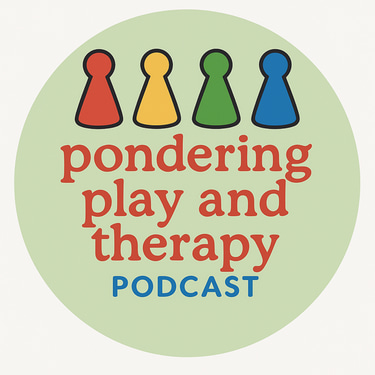Play and NVR: An Interview with Penny Willis
Philippa Kelly speaks with Penny Willis from NVR Northampton about Nonviolent Resistance (NVR), a parenting and caregiving approach that helps families facing conflict, aggression, and various other relational challenges.
Philippa with the assistance of AI
8/22/20253 min read


What is NVR?
Nonviolent Resistance (NVR) is a therapeutic and practical approach developed by Israeli family therapist Haim Omer in the early 2000s. It was originally created to support parents experiencing child-to-parent violence and abuse (CPVA) but has since been expanded and adapted for a wide range of contexts — including foster care, adoption, schools, residential care, eating disorders, self-harm, and parental alienation.
As Penny explains:
“NVR helps parents who feel they've lost control, connection, or hope with their child to reclaim their presence, not through force, but with calm strength, support, and persistent care. It replaces isolation with community, fear with purpose, and creates a path for rebuilding trust, respect, and belonging in the family.”
Standing Against Harm, Caringly and Together
At the heart of NVR is the idea that parents and caregivers can stand against harmful behaviours without escalating conflict by reacting with punishment, anger, or force. Adults are supported to remain calm, present, and connected, yet also firm, resolute and decided — even when faced with aggression or destructiveness.
Philippa reflects:
“NVR feels like a way of supporting parents and carers to manage big feelings without joining the conflict. It prioritises safety — physical, emotional, and relational — and keeps the child-parent relationship intact.”
Key Principles and Strategies
Penny outlines several central elements of NVR:
Parental Presence: Caregivers develop a calm, steady presence that reassures children of their safety and worth. This presence can be shown directly (spending time, leaving a note, small relational gestures) or indirectly (support from the wider community).
Community and Supporters: Parents are encouraged to overcome the “privacy reflex” and gather allies—teachers, relatives, neighbours, or friends—who can provide encouragement and model respect.
Transparency and Announcements: Families openly acknowledge behaviours that can no longer be tolerated. This is done in a supportive, non-shaming way, separating the child from their behaviour.
The Baskets (Prioritising Behaviour): Parents place concerning behaviours into categories:
Small basket: up to two behaviours that are most urgent and risky.
Medium basket: behaviours that matter but can wait.
Big basket: things to let go of.
Rainbow basket: positive qualities and moments of connection to notice and celebrate.
Repair and Playfulness: Repairing ruptures in the relationship is central. Play, humour, and lightness often help families reconnect and build resilience after conflict.
Why “Nonviolence”?
The term nonviolent resistance can feel controversial. As Penny explains, it’s not only about physical aggression but also about resisting coercion, control, humiliation, or rejection.
“It’s a refusal to join patterns of force or control. Nonviolence, in the broadest sense, means resisting in a way that is caringly together.”
Some practitioners use terms like 'new authority' or 'connecting authority' to describe the same ideas.
A Parent-Centred, Child-Focused Approach
NVR is clear: this is not about “fixing” the child alone. It’s about strengthening parents and carers, reducing their isolation, and helping them reclaim their authority in compassionate ways.
“It takes a village to raise a child. NVR says: it takes a village to support a parent to raise a child.”
Parents learn they are not alone, not to blame, and that by changing their responses they can create ripples of positive change in their families and communities.
NVR Northampton
Penny founded NVR Northampton in 2016 after recognising a gap in support for families experiencing child-to-parent violence. Today, the service offers:
NVR Parenting groups a
Bespoke support packages for individual families
Training courses for a broad variety of professionals –
Child services and associated professionals (for example, social workers, adoption support, early intervention and adoption & fostering teams and children's home staff)
Educators (Teachers, Headteachers and Teaching assistants)
Youth Justice and court-associated professionals (CAFCASS workers, Child Guardians, IROs, Magistrates, Mediators, Youth offender support workers and institute/training centre staff, etc)
Mental Health professionals (for example, Psychologists, Psychotherapists, Family therapists and CAMHS professionals).
Advanced development and adaptation of NVR/’New Authority’ strategies for situations involving perceived parental alienation (for parents either experiencing alienation or being wrongly accused of adopting alienating behaviours).
Families and professionals can access NVR training through NVRnorthampton's website: NVR Northampton where you'll also find links to their social media channels.
Final Thoughts
This interview with Penny highlights how NVR offers hope and structure for families under stress. It is both practical and deeply relational, reminding us that:
Change starts with the adult’s calm presence.
Connection and community are the antidote to isolation.
Playfulness, persistence, and repair keep relationships alive, even in the hardest times.
As Penny says (paraphrasing Dan and Haim):
“NVR grows courage. It helps families stand against harm, caringly and together.”
